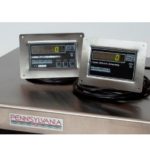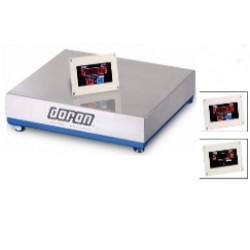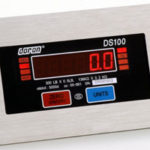Airline baggage scales are an often overlooked but crucial component of air travel. These weighing devices serve as the gatekeepers to a smooth and stress-free journey for passengers worldwide. From the evolution of simple manual scales to cutting-edge digital and portable systems, the journey of these scales has been marked by technological advancements and stringent regulations.
Are Airline Luggage Scales accurate?
The standard airline baggage scales that we offer from Pennsylvania and Doran are accurate to within 0.1 of 1 percent. So, yes they are very accurate.
Introduction to Airline Baggage Scales
When it comes to air travel logistics, baggage scales are instrumental in determining the weight of luggage, thereby ensuring safety and efficiency during flights. With the importance placed on weight restrictions and accuracy, these scales are very important tools for both the airlines and the passengers.

Evolution of Baggage Scales
In the historical context, baggage scales have transitioned from mechanical systems to more sophisticated and precise digital scales. The evolution of these scales reflects the broader technological advancements in the aviation industry. It has also become very common for many airports to install scales throughout the airport which allows airline passengers to weigh their luggage accurately before they actually place their suitcases on “the baggage scale”. This way if the luggage is too heavy passengers can make the proper adjustments and possibly avoid fines and delays.
Types of Baggage Scales
The current day baggage scale systems typically consist of a 24″x24″ scale platform connected to one or two weight displays. Popular scale manufacturers include Triner and Pennsylvania Scale Company.
How do Baggage Scales Work?
The typical airline baggage scale has a heavy duty single point load cell inside the scale platform. When a suitcase is placed on the scale platform, the load cell bends very slightly. This movement is registered by the strain gauge and displayed on the digital weight indicator. It also may be displayed on the remote display that faces the customer.

Baggage Scale Regulations and Industry Standards
In our experience, most baggage scales are designed to be tested and approved by NTEP and then once installed, the scales are certified and tested by local scale companies along with possibly local state weights and measures officials.
Common Issues with Baggage Scales
As with most scales, inaccurate weighing can occur over time. It’s a good idea to have your baggage scales checked on a regular basis by a local scale calibration company. Accurate baggage scales are pivotal for cost considerations and maintaining operational efficiency, affecting various aspects of the airport and the airlines.

Emerging Technologies & Future Trends in Airline Baggage Weighing
Integration of Internet of Things (IoT) and automated systems is on the verge of transforming baggage weighing, promising more accurate and efficient processes. AI integration and continual advancements are expected to shape the future landscape of baggage scales, focusing on environmental and technological improvements.
As the travel industry continually adapts and evolves, the significance of airline baggage scales cannot be overstated. Their accuracy and reliability directly influence the travel experience, both for airlines and passengers. If you need assistance choosing which baggage scales would work best for your application be sure to contact our customer service department.